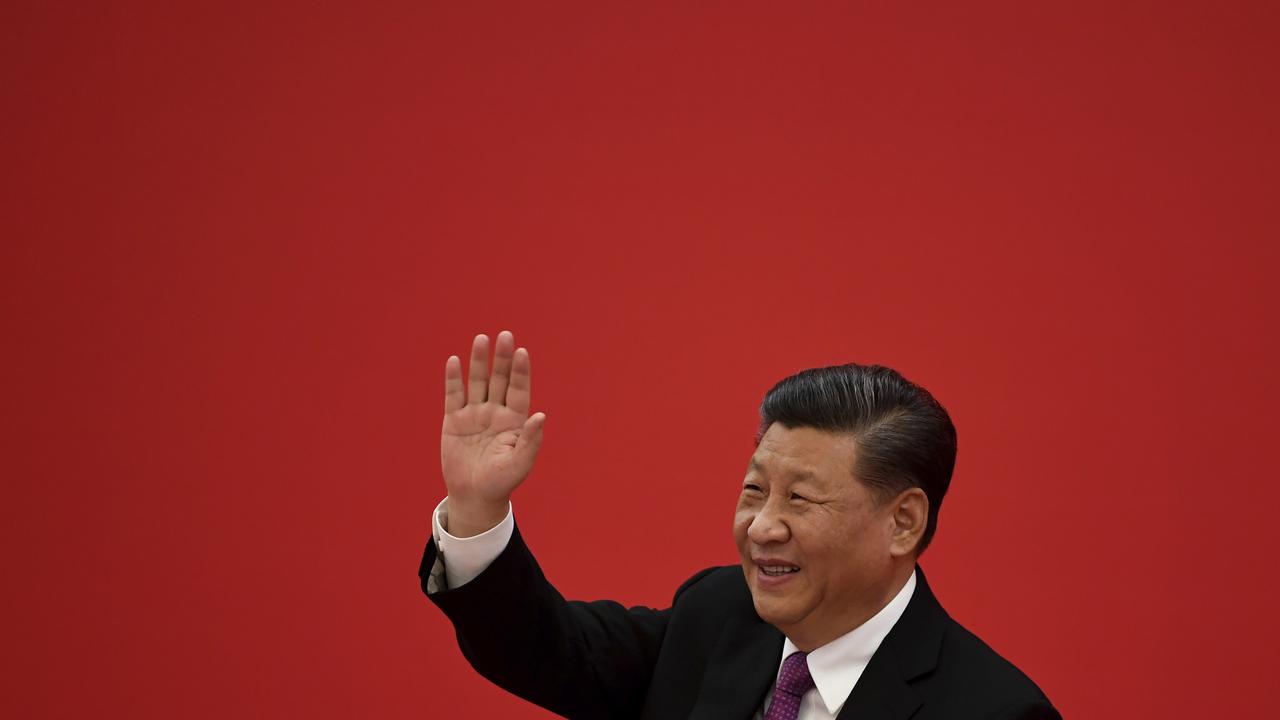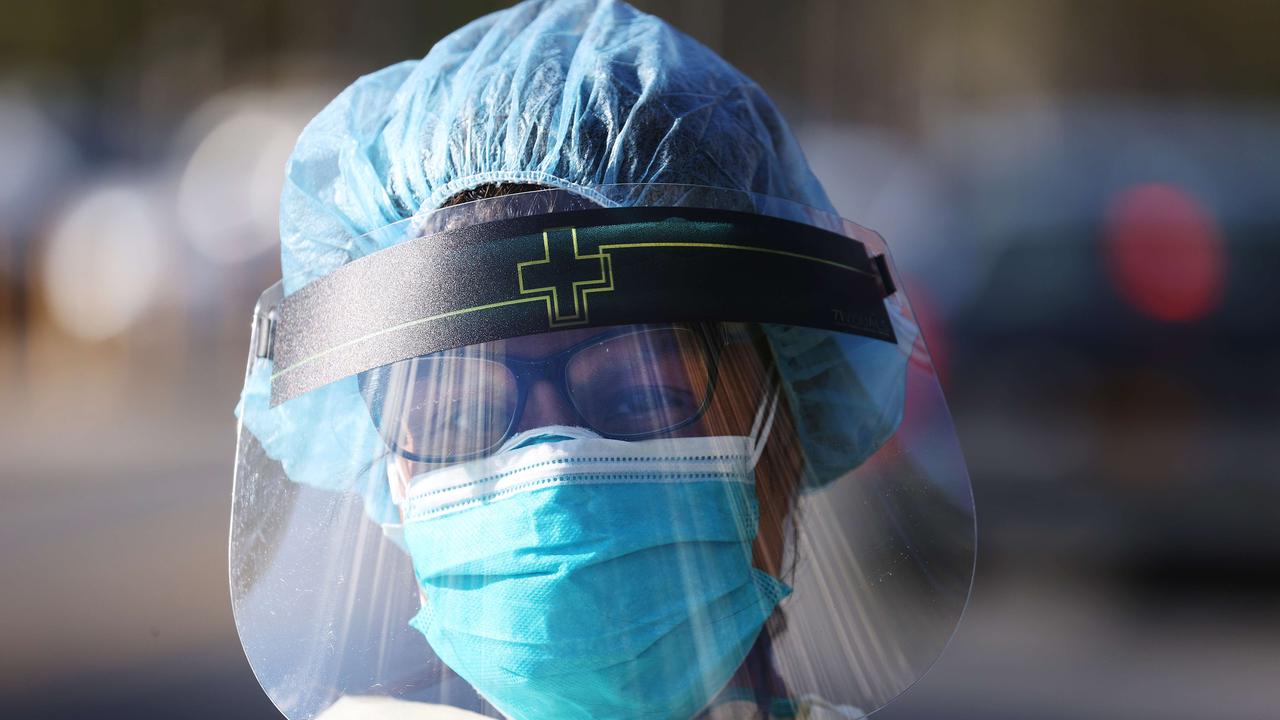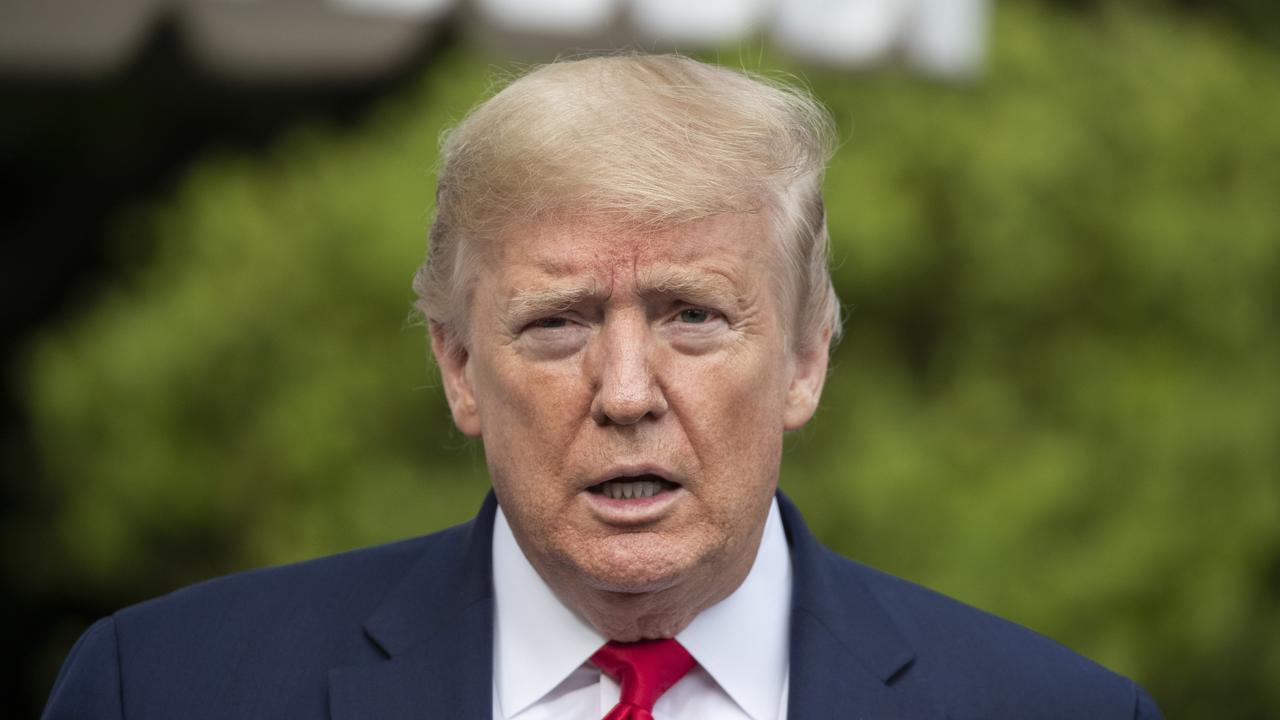Coronavirus: United States and China race to find COVID-19 vaccine
A global race is underway to be the first to develop a vaccine for COVID-19. And for two countries in particular, there’s a lot at stake.
The race is on between the United States and China to successfully produce a vaccine for COVID-19.
A vaccine is widely acknowledged as the key to ending the pandemic, and enormous benefits for the country that gets there first.
RELATED: Follow our coronavirus coverage here
RELATED: How dining will change after COVID-19
Governments, charities and massive pharmaceutical corporations are sinking billions of dollars into bets with low odds of success.
A vaccine would see potential profits for the medical and science industry, makers of medicine and researchers. But for the US or China, it would also be a massive geopolitical victory.
CHINA SCRAMBLES TO DISCOVER COVID CURE
China already has a head start on the global effort to find a vaccine.
Four Chinese companies have begun testing their vaccine candidates on humans, and according to The New York Times, one senior official estimated a vaccine for emergency use could be ready by September.
Dr Scot Gottlieb, former commissioner of the Food and Drug Administration under President Donald Trump, says the country is making “rapid progress” while the US flails behind.
“The first nation to develop a vaccine for COVID-19 could have an economic advantage as well as a tremendous public-health achievement,” he wrote in The Wall Street Journal. “China is making rapid progress, with three vaccines entering advanced development.
“Chinese officials say they could have a vaccine available for widespread use next year. The Europeans are also making progress. While friendly nations will try to share a successful product – to a point – the US can’t rely on vaccines from China or even Europe being available in America quickly.”

He also stressed that speed cannot supersede safety. “The urgency to develop a vaccine quickly is eclipsed only by the need to make sure it is very safe.”
China also has a lot to gain from being the first to offer the world a vaccine. The government is not only seeking to protect its own people, but also to bolster its own reputation, which has been tarnished due to its handling of the initial COVID-19 outbreak in December.
Being the first country to develop a vaccine would both boost its reputation, and help cement its standing as a scientific and medical superpower.
DEATH TOLL CONTINUES RISING IN US
The United States is now the worst-hit country by COVID-19, with more deaths and positive cases than anywhere else in the world.
Donald Trump has increased his projection for the total US coronavirus death toll to as many as 100,000 – up by 40,000 from what he suggested just a few weeks ago.
“Look, we’re going to lose anywhere from 75,000, 80,000 to 100,000 people,” he told a virtual town hall hosted by Fox News Channel overnight.
Americans were warned that the daily death toll will reach about 3000 on June 1, according to an internal document obtained by The New York Times. That’s nearly double the current number of about 1750.
The projections, based on government modelling pulled together in chart form by the Federal Emergency Management Agency, forecast about 200,000 new cases each day by the end of the month, up from about 25,000 cases now.

Mr Trump declared on Sunday that he believed a vaccine could be available by the end of this year.
US public health officials estimated it could be up to 18 months away. But Dr Anthony Fauci, the nation’s leading expert on infectious diseases and member of the White House coronavirus task force, said in late April that it is conceivable, if a vaccine is soon developed, that it could be in wide distribution as early as January.
With the US expecting to go to its election in November, it’s in Mr Trump’s best political interests to produce a vaccine by then.
Paul Stoffels, chief scientific officer at Johnson & Johnson, which has partnered with the US government on a $1 billion investment to produce a vaccine, says the crisis is now at the point where “maximum risk” must be taken.
“The crisis in the world is so big that each of us will have to take maximum risk now to put this disease to a stop,” he said. “If it fails, it will be bad.”
Historically, just 6 per cent of vaccine candidates end up making it to market, often after a years-long process that doesn’t draw big investments until testing shows a product is likely to work.
But the traditional rules of drug and vaccine development are being tossed aside in the face of COVID-19, which has infected 2.7 million people, killed more than 192,000 and devastated the global economy.
GROWING BACKLASH TO CHINA
An internal Chinese report warned that Beijing faces a rising wave of hostility in the wake of the coronavirus outbreak that could tip relations with the United States into confrontation, Reuters reported.
The report, presented early last month by the Ministry of State Security to top Beijing leaders including President Xi Jinping, concluded that global anti-China sentiment is at its highest since the 1989 Tiananmen Square crackdown.
As a result, Beijing faces a wave of anti-China sentiment led by the US in the aftermath of the pandemic and needs to be prepared in a worst-case scenario for armed confrontation between the two global powers, they said.
Mr Trump initially praised China’s handling of the coronavirus outbreak, but he has since adopted a more aggressive tone and pushed for a more hawkish China policy.
As the United States becomes the centre of the pandemic, with the most reported cases and deaths, the US President has been accused of trying to deflect blame onto the Chinese leader as he seeks re-election this year.
Relations between China and the United States are now widely seen to be at their worst point in decades, with deepening mistrust and friction points from US allegations of unfair trade and technology practices to disputes over Hong Kong, Taiwan and contested territories in the South China Sea.
China has been accused by the United States of suppressing early information on the virus, which was first detected in the central city of Wuhan, and downplaying its risks.

Beijing has repeatedly denied that it covered up the extent or severity of the virus outbreak.
China has managed to contain domestic spread of the virus and has been trying to assert a leading role in the global battle against COVID-19.
That has included a propaganda push around its donations and sale of medical supplies to the United States and other countries and sharing of expertise.
But China faces a growing backlash from critics who have called to hold Beijing accountable for its role in the pandemic.
Mr Trump has said he will cut off funding for the World Health Organisation (WHO), which he called “very China-centric,” something WHO officials have denied.
Australia’s government has called for an international investigation into the origins and spread of the virus.
‘LANDMARK COLLABORATION’ FOR VACCINE
On Friday, the World Health Organisation announced a “landmark collaboration” across the international community to raise $A12.5 billion to accelerate the coronavirus vaccine development and ensure equitable access worldwide.
Australia, as well as countries across Europe, Asia, Africa, the Middle East and the Americas announced their participation. Australia pledged $352 million to the cause.
But the United States and China did not announce their participation.
“There will be no US official participation,” a spokesman for the US mission in Geneva said, adding that the US supports “global co-operation to develop a vaccine”.
A WHO spokeswoman said Friday’s announcement was the beginning of a global collaboration and “we would welcome more countries coming on board”.
China did not respond to a request for comment.
People involved in the global vaccine race told Reuters that the greatest incentive for countries to promise to share coronavirus vaccines may be the uncertainty around which ones will work.
Since no country can be sure the candidates it backs will prove successful, committing to sharing with other nations can help assure they’ll have an initial supply to inoculate health care workers and other critical populations.
– with Reuters



